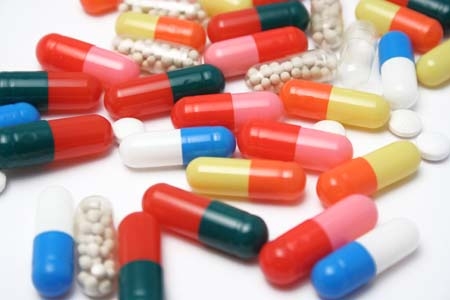Business Monitor International estimated the size of Lebanon's pharmaceuticals market at $1.28bn in 2012, constituting an increase of 6.4% from $1.2bn in 2011. It forecast the market size to reach $1.73bn in 2016 and to grow at a compound annual rate (CAGR) of 7.6% during the 2011-2016 period. It said that further price restrictions similar to those imposed in 2009 and renewed political unrest in the region constitute the main risks to the outlook. It forecast Lebanon's per-capita spending on pharmaceutical products at $297.5 in 2012 relative to $281.7 in 2011, and expected such spending to increase to $402.4 in 2016 and to post a CAGR of 7.4% during the 2011-16 period. It said that spending on pharmaceuticals was equivalent to 2.94% of GDP last year, which ranks Lebanon in seventh place globally behind a number of small African states where international aid is distorting pharmaceutical purchasing patterns. It forecast spending on pharmaceuticals to be equivalent to 2.91% of GDP in 2012, 2.87% of GDP in 2013 and 2.8% of GDP in 2014.
In parallel, BMI indicated that 70% of the Lebanese market consists of imported pharmaceuticals, and expected the market to remain almost entirely reliant on imports. It said there are about 6,000 types of drugs on the local market, with 80% of them imported by about 50 firms from more than 508 factories in 25 countries. It noted that domestic production represents 10% of the market in volume terms but less than 4% of the market in value terms.
It estimated that prescription medicines represented around 73% of total market value last year. It attributed the high share of prescription medicines to the widespread use of patented drugs, which account for 66% of total spending on prescription drugs, and to the relatively high prices of generic drugs. But it expected cost-containment pressures and patent expirations to contribute to higher usage of non-patented medicines in the future. Further, it said that medicines represent around 41% of healthcare spending in Lebanon. It anticipated this share to remain high through 2021 and to be supported by the use of more modern medicines, demographic and epidemiological factors, and the expansion of healthcare insurance coverage. But it noted that reforms to the insurance and health coverage system would encourage the prescription of generic drugs, while a serious control of the sale of counterfeit medicines would lead to a fall in the proportion of healthcare spending on medicines.
BMI also pointed out that the sector presents significant opportunities due to the growth potential of the patented medicines segment, the government's desire to encourage local production, and rising local demand for pharmaceutical products. In contrast, it said that the government's resistance to reforming domestic patent law, continued concerns over counterfeiting, parallel imports that are undercutting locally-manufactured products, and price cuts on selected products constitute the main threats to the sector's development.
Lebanon This Week – Byblos Bank Research
7 October

























































